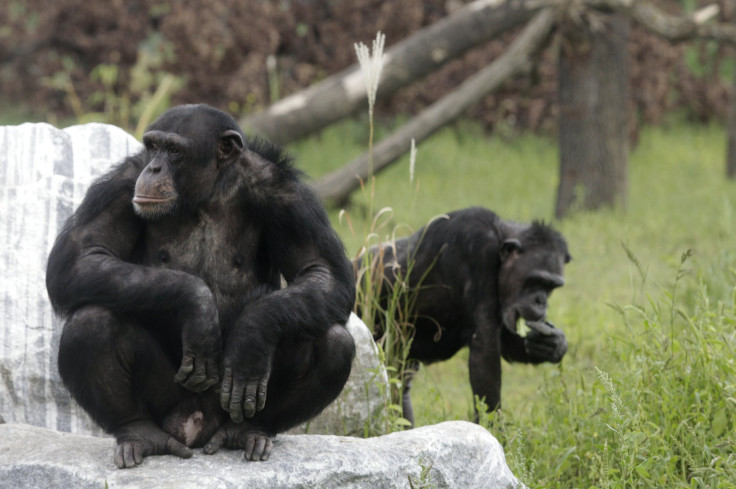Chimpanzees Learn New Calls For Particular Objects From Foreign Counterparts: Study

Chimpanzees are known for using special grunts when they ask for food, and other members of their group know exactly what those calls mean. Now, a new study has revealed that when two separate groups of chimps are kept together, they can learn calls from their new peers.
The study, published in the journal Current Biology on Thursday, suggested that the calls chimps use for food are not fixed in their structure like human words. When chimpanzees are exposed to a new group, they can pick up new food calls by making changes to their referential grunts to better communicate with the new group mates.
“An extraordinary feature of human language is our ability to reference external objects and events with socially learned symbols, or words,” Katie Slocombe of the University of York in England, and the study’s co-author, said in a statement. “These data represent the first evidence of non-human animals actively modifying and socially learning the structure of a meaningful referential vocalization.”
As part of the study, the researchers moved nine chimps from the Beekse Bergen Safari Park in the Netherlands to the Edinburgh Zoo in Scotland in 2010 to live with the resident chimpanzees. Before the merger, the researchers observed that chimps of each group had a different grunt to denote apples, but after they were kept together for three years, the incoming Dutch chimps modified the structure of their grunts to sound like those produced by the resident Edinburgh chimps.
The researchers recorded the grunts produced by the chimpanzees in response to apples before integration once in 2010, then after integration in 2011, and yet again in 2013. According to them, the acoustic structure of referential food grunts produced by the two groups converged over the course of three years, after members of both groups got to know each other better. The researchers also said that the acoustic convergence had nothing to do with the apes’ individual food preferences.
“Our findings indicate that primate referential call structure is not simply determined by arousal, and that the socially learnt nature of referential words in humans is likely to have ancient evolutionary origins,” Slocombe said.
© Copyright IBTimes 2025. All rights reserved.






















